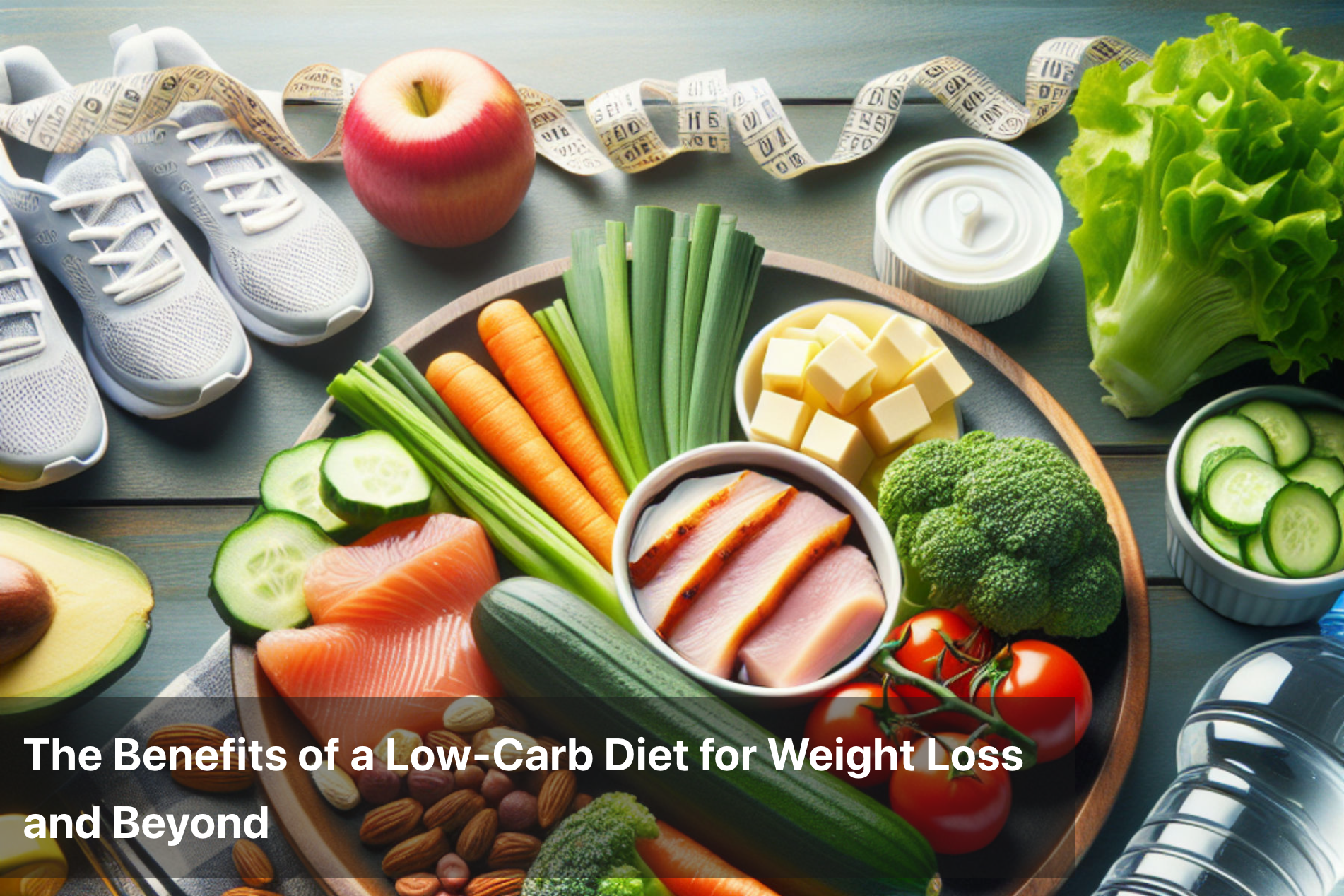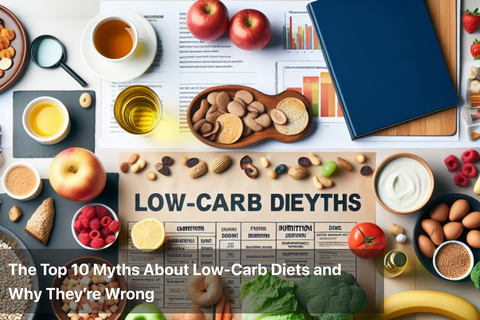
The Benefits of a Low-Carb Diet for Weight Loss and Beyond
Nutrition plays a powerful role in shaping overall health, and the low-carb diet has become one of the most popular dietary strategies for people seeking sustainable weight loss, improved energy, and metabolic health. While weight loss often takes the spotlight, the benefits of a low-carb diet extend far beyond just shedding kilos. From stabilizing blood sugar to improving heart health, this way of eating offers a wide range of advantages when done correctly.

How a Low-Carb Diet Works
A low-carb diet reduces the intake of carbohydrates, particularly those found in sugary foods, bread, rice, and processed snacks. In response, the body shifts from using glucose as its main fuel source to burning stored fat for energy. This process, known as ketosis when carbs are very low, can significantly enhance fat-burning efficiency.
Carbohydrates cause spikes in blood sugar and insulin levels. By limiting carbs, insulin levels drop, encouraging the body to use fat as fuel instead of storing it. This metabolic switch plays a key role in many of the health benefits associated with low-carb diets.
Effective and Sustainable Weight Loss
One of the most immediate and noticeable effects of a low-carb diet is weight loss. Reducing carbohydrate intake leads to:
-
Lower insulin levels, which reduce fat storage
-
Increased satiety due to higher intake of protein and healthy fats
-
Reduced cravings and better appetite control
-
Water weight loss in the initial phase, due to decreased glycogen stores
Many people experience faster initial weight loss compared to low-fat diets, which often serves as motivation to stay consistent. Over time, the diet promotes fat loss without the need for calorie counting or extreme hunger.
Appetite and Cravings Stay in Check
Hunger is a major roadblock in most diets. Low-carb diets naturally reduce appetite due to the stabilizing effect they have on blood sugar and hormones like ghrelin (the hunger hormone). Foods rich in protein and fat are more satiating, which makes it easier to eat fewer calories without feeling deprived.
By eliminating processed carbs and added sugars, many people also experience a dramatic drop in sugar cravings, making it easier to avoid binge eating or snacking between meals.
Better Blood Sugar Control
Carbohydrate-rich foods cause spikes in blood sugar, followed by crashes that lead to fatigue, hunger, and irritability. For individuals with type 2 diabetes or insulin resistance, a low-carb diet helps in the following ways:
-
Stabilizes blood glucose levels
-
Improves insulin sensitivity
-
Reduces HbA1c and fasting glucose
-
May reduce or eliminate the need for diabetes medications (under medical supervision)
This makes low-carb eating a powerful dietary strategy for people managing or preventing type 2 diabetes.
Improved Heart Health
Contrary to earlier concerns about fats, recent studies suggest that low-carb diets can actually support heart health by improving several risk factors:
-
Increased HDL (good cholesterol)
-
Reduced triglycerides
-
Lower blood pressure
-
Improved LDL particle size (a marker for cardiovascular risk)
By focusing on healthy fats like nuts, seeds, olive oil, and avocado—and avoiding refined carbs—individuals often experience positive changes in their lipid profiles and overall cardiovascular wellness.
Enhanced Mental Clarity and Focus
Carbohydrate-heavy meals often lead to brain fog, sluggishness, and energy crashes. On a low-carb diet, once the body adapts to using fat as fuel, many people report:
-
Improved mental clarity
-
Stable, all-day energy
-
Reduced brain fog and improved concentration
The brain can efficiently run on ketones, a byproduct of fat metabolism, which explains the mental sharpness often associated with low-carb lifestyles.
Supports Healthy Hormonal Balance
A low-carb diet can positively influence hormones that regulate metabolism, appetite, and reproductive health. For women with polycystic ovary syndrome (PCOS), reducing carbohydrate intake can:
-
Improve insulin sensitivity
-
Reduce androgen levels
-
Support weight management
-
Restore regular menstrual cycles
This makes the diet especially helpful for hormonal disorders linked to insulin resistance.
Reduced Inflammation
Chronic inflammation is linked to various diseases, including heart disease, arthritis, and obesity. Low-carb diets often reduce inflammatory markers in the body by:
-
Eliminating added sugars and refined carbs
-
Encouraging whole, anti-inflammatory foods
-
Supporting stable blood sugar levels
Reduced inflammation can lead to fewer aches and pains, better skin, and overall improved wellness.
Greater Food Awareness and Simplicity
Adopting a low-carb lifestyle often leads to greater food awareness. People become more conscious of labels, ingredients, and nutritional content. The diet naturally emphasizes whole, unprocessed foods, which simplifies choices and reduces dependence on fast food or packaged snacks.

Customizable to Different Lifestyles
There is no one-size-fits-all version of a low-carb diet. It can be adapted to various needs and preferences:
-
Standard Low-Carb Diet: Balanced protein, fat, and reduced carbs
-
Ketogenic Diet: High fat, very low carb, moderate protein
-
Eco-Friendly Low-Carb: Plant-based with legumes, seeds, and low-carb veggies
-
Cyclical Low-Carb: Alternating high-carb and low-carb days (often for athletes)
This flexibility makes it easier to sustain long-term without feeling overly restricted.
Summary
A low-carb diet offers more than just weight loss—it supports blood sugar control, heart health, mental clarity, hormone balance, and inflammation reduction. By focusing on whole foods, cutting out added sugars and refined grains, and fueling the body with proteins, healthy fats, and fiber-rich vegetables, the low-carb lifestyle becomes a powerful tool for lifelong wellness.
Lofoods supports this journey by offering low-carb, diabetic-friendly foods designed to align with your health goals. With the right knowledge and food choices, lasting transformation is not just possible—it's achievable.
This Blog post is an initiative by Lo! Foods, to provide accurate and Nutritionist / Doctor approved information related to Health. Lo! Foods is India's leading brand for Everyday Functional Foods. Foods designed for specific Health conditions or Needs. Lo! Foods also runs India's largest range of Low Carb Healthy Cloud Kitchens, under the brand names of Lo!, ProteinChef, ATH (All Things Healthy) and DiabeSmart.















Leave a comment
Your email address will not be published.